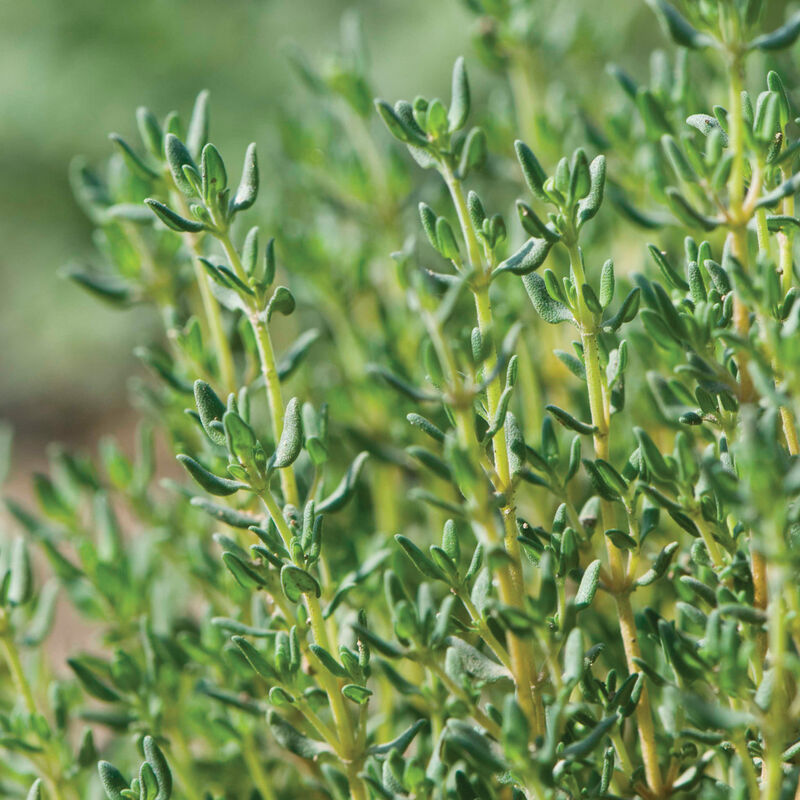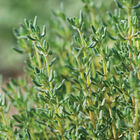German Winter Thyme Seed
German Winter Thyme Seed
The standard winter-hardy thyme.
Good flavor and yield. Classic culinary and ornamental herb. Small, round to needle-shaped evergreen leaves on woody stems. Mulch in cold winter climates. Perennial in Zones 5–8.Specs:
SOWING: Transplant (recommended): Start seeds in flats 8-10 weeks before the last frost. Sow seeds on top of the growing medium and cover with a thin layer of soil mix. Keep moist until germination. Transplant to individual containers when plants have 4 true leaves. After the last frost in spring, transplant outside and space 6-8" apart, in rows 12-18" apart. Pinch off growing tips of upright growing varieties to make bushier plants.
LIGHT PREFERENCE: Sun/Part Shade. In very hot climates, thyme will need part shade to do well.
SOIL REQUIREMENTS: Thyme grows best in light, dry, well-drained soil.
PLANT HEIGHT: Varies.
PLANT SPACING: 6-8".
HARDINESS ZONES: Varies.
HARVEST: Cut only a few stems the first year in order for the plants to winter over. In subsequent years, harvest just as the flowers being to open. Cut back to within 4-5" above the ground.
Note: Thyme will become woody and needs to be divided or replaced after 3-4 years.
SCIENTIFIC NAME: Thymus spp.
Johnny's is committed to your success, every step of the way.
We want you, our customer, to be 100% satisfied with all of our seeds, tools, and supplies.
If anything you purchase from us proves unsatisfactory, we will either replace the item or refund the purchase price.






